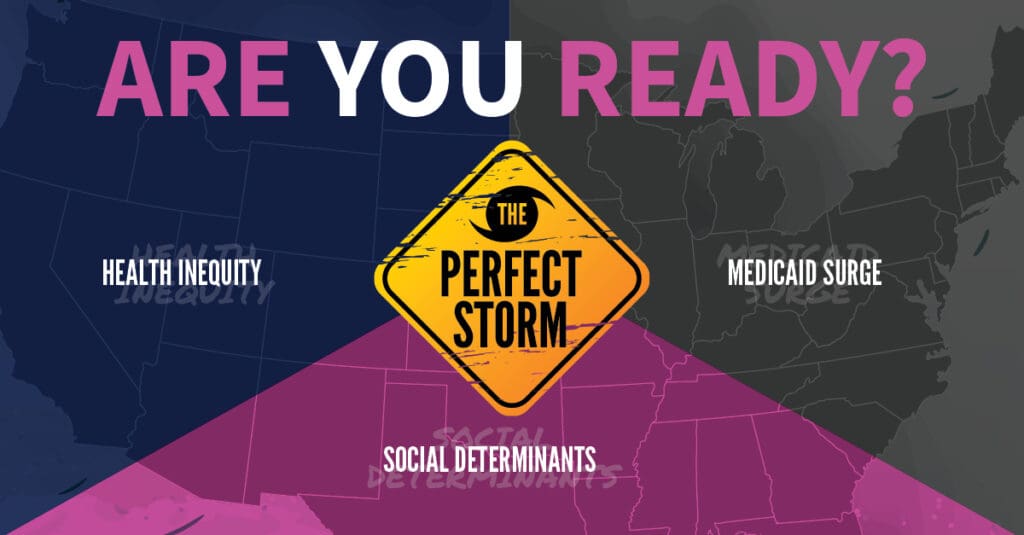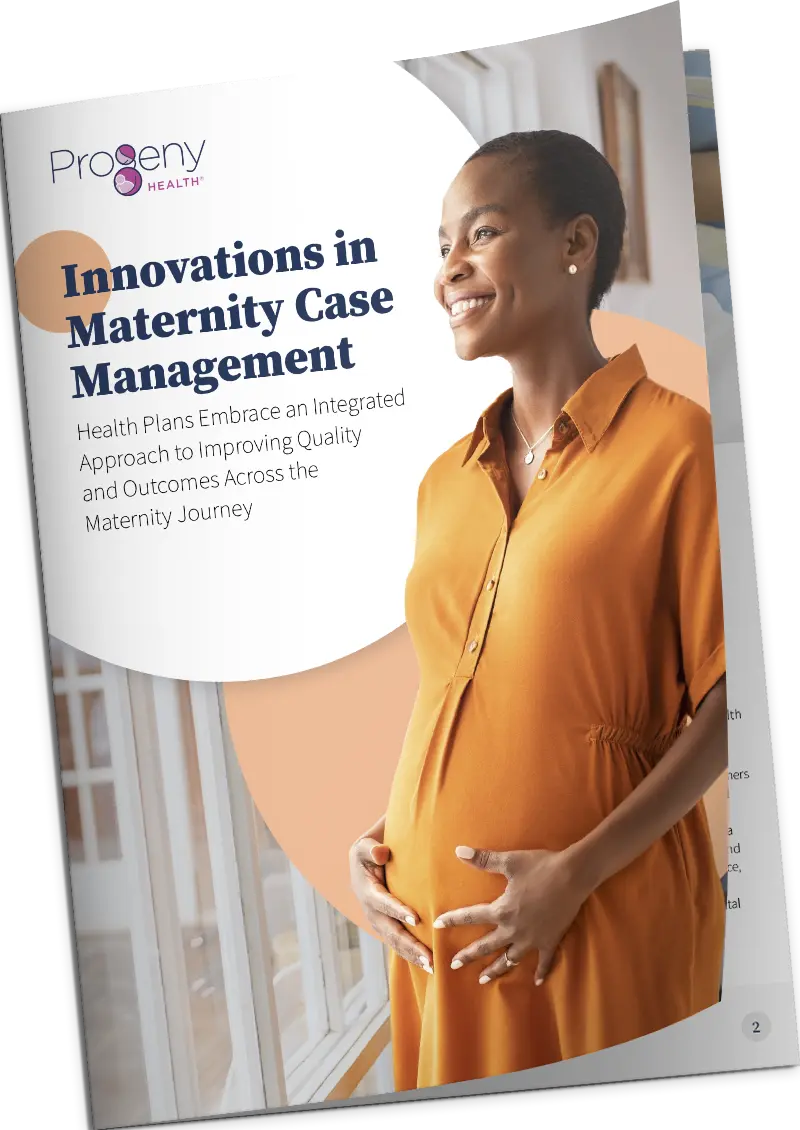
Are You Ready for the Storm?

Like a perfect storm brewing on the horizon, new studies expect state budgets to be hammered by growing Medicaid enrollment, rising health inequities, and unmanaged Social Determinants of Health.
Surge in Enrollment

COVID-19 layoffs triggered a surge in enrollment, but as the pandemic continues to unfold, Medicaid dependency will grow as well. Medicaid policy changes will also play a role by limiting the tools available to states to manage the crisis.
Since 2000, Medicaid spending has more than tripled, surpassing $613 billion in 2019 when 75 million people were on Medicaid. For every three dollars states spend, one goes to Medicaid.
The Foundation for Government Accountability study sees the pandemic surging an enrollment increase of 55 million – a 73 percent increase nationwide. ACA expansion states will be hit the hardest.1
Also fueling the growth, another study found that 47% of uninsured Americans during the pandemic did not consider Medicaid or ACA plans, assuming they were ineligible. With the new administration, policies may be enacted to improve awareness and accessibility of Marketplace and Medicaid/CHIP coverage – policies that will also fuel the enrollment surge.2
The Takeaway – State Medicaid directors will need to take decisive action by implementing savings levers that mitigate increased Medicaid enrollments.
Rising Health Inequities
According to the March of Dimes, women of color and their babies consistently have worse health outcomes than white mothers.3 Among their findings:
- Bias in Care – The attitudes and behaviors of health care providers have been identified as a factor in these inequities – often enacted without conscious volition.
- Healthcare deserts – Each year in the U.S., approximately 150,000 babies are born to moms living in maternity care deserts or communities without a hospital offering obstetric care and without obstetric providers. Women in these communities have difficulty obtaining appropriate and quality care before, during, and after pregnancy.
- Unequal Access – 16 percent of childbearing age women are uninsured compared to 9 percent in states with expanded Medicaid.
The Takeaway – Health inequities will further strain the system. Health organizations don’t wield government power, yet they will recognize the significant role they must play in achieving health equity and addressing disparities at the point of care.
Unmanaged Social Determinants of Health
Among the Medicaid population, the social determinants of health challenge women managing a pregnancy or caring for a newborn. For example, the cost of healthy food might be too high or inaccessible. Transportation and childcare issues also make prenatal appointments a challenge. Other social determinants include economic stability, education and literacy, neighborhood safety, provider availability, and more.
As a result, the impact of SDoH is significant:4
- Health Literacy affects 90 million Americans.
- 1 in 8 Emergency Department visits are related to substance abuse and mental health.
- Adequate housing reduces Medicaid claims by 55% and ED visits by 24%.
- 1 in 8 face Food Insecurity
The Perfect Storm is Coming
In 2021, Medicaid programs will need to leverage specialized partners to prepare for the Perfect Storm. For example, with the surge in enrollment, ProgenyHealth can reduce rising Medicaid NICU costs to deliver an average 2-1 ROI using industry-leading UM and CM processes, technology, and expertise to improve outcomes and lower NICU costs.
In the face of growing health inequities, keeping focus on the right level of care and support is critical for the infant. As critical is helping to ensure that the mother has a full understanding of the plan of care and resources available to her and her family as she navigates her baby’s first year of life. ProgenyHealth’s team helps to ensure this happens.
And in the face of SDoH challenges, we provide the infrastructure needed to integrate NICU-specific SDoH case management into the broader clinical ecosystem through seamless coordination between clinicians and social service professionals.
- thefga.org/research/covid-19-medicaid/
- healthpayerintelligence.com/news/47-of-uninsured-americans-did-not-explore-aca-medicaid-options
- www.marchofdimes.org/mission/reportcard.aspx
- info.progenyhealth.com/sdoh








 Prev
Prev